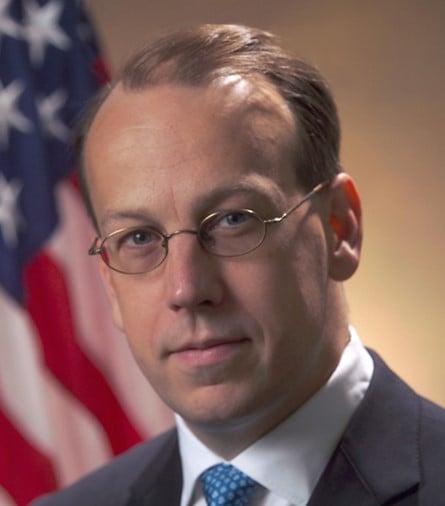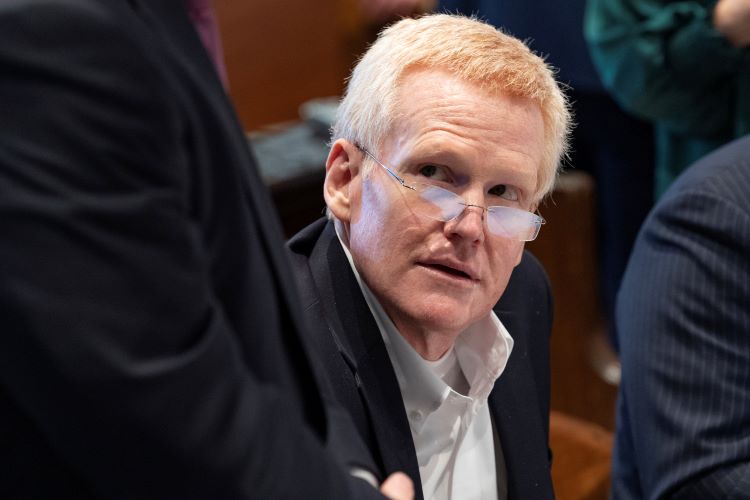A BigLaw suicide survivor’s prescription for the legal profession’s mental health crisis
By Kent A. Halkett
I was young, single, healthy, confident and “bulletproof” when I entered law school immediately after college in 1978. I did not have any personal experience with anyone suffering mental health challenges. Mental health education and services were the furthest things from my mind.
My blissful ignorance of the life and death issues presented by mental health came crashing down on me in the mid-1990s when, as a young partner in a BigLaw firm, I was diagnosed with clinical depression. My condition drastically altered the arc of my career and, ultimately, culminated in my suicide attempt in mid-2015, as shared in “A BigLaw partner’s journey through clinical depression.”
I was completely blindsided by my clinical depression. At the outset, I did not have any idea what was happening to me. I did not know that help was available.
Law school had not alerted me and my classmates of the mental health crisis in the legal profession, prepared us to recognize the warning signs or taught us where to find help for those suffering with mental health issues. Similarly, the legal profession had not prepared me or my professional colleagues to deal with such things. But, candidly, even if such mental health information and services had been available and were voluntary in my career to that point, I would have ignored all of it as being irrelevant to my life and career.
In hindsight, I am painfully aware that I needed such basic mental health education before and during my legal career. Moreover, I firmly believe that all law students and attorneys should be exposed to, and required to study, such information for their own health and well-being.
In April 2021, my Los Angeles Lawyer article “Stop the ‘Insanity’: Mandating Mental Health Education in Law School” urged the American Bar Association, law schools and state supreme courts to implement a for-credit mental health and substance abuse course for law students as a requirement to graduate from ABA-accredited law schools, as well as similar courses for licensed attorneys as part of their CLE requirements.
The legal profession’s mental health crisis is well-documented and getting worse. In May 2023, Law.com and The American Lawyer published the results of ALM (formerly American Lawyer Media)’s most recent annual mental health survey of the legal profession with an accompanying article “‘There’s a Lot of Backlog to Address’: Why Mental Health in the Legal Profession Is Getting Worse,” and graphically in “Mental Health by the Numbers: An Infographic Mapping the Legal Industry’s Well-Being.”
The next day, the ABA Journal highlighted the ALM’s findings in its article “Mental health initiatives aren’t curbing lawyer stress and anxiety, new study shows.” The Journal succinctly warned that despite “increasing focus on mental health and well-being in the legal profession, lawyers are reportedly dealing with more stress, anxiety and depression …”
A stand-alone mental health CLE requirement
In February 2017, the ABA’s House of Delegates attempted to combat the crisis by adopting a new, long-overdue Model Rule of Minimum Continuing Legal Education (MCLE) and Comments (“MCLE Model Rule”). Section 3(A)(2)(b) provided, in part, that attorneys must earn credit hours in “mental health and substance use disorders programming (at least one credit hour every three years).”
The ABA’s goal was to have such education reach as many lawyers as possible. It acknowledged that many jurisdictions allowed mental health and substance use disorder programming to count toward the ethics or general CLE requirements, but the research indicated that lawyers may be reluctant to attend such programs due to potential stigma. Honestly, the ABA concluded that it “is extremely unlikely … that one hundred percent of lawyers will elect to take mental health and substance use disorder programming if it is not specifically required, which is why this Model Rule recommends a stand-alone requirement.”
Prior to the adoption of the MCLE Model Rule, only three jurisdictions—California, Nevada and North Carolina—required stand-alone mental health and/or substance use disorder CLE credit. The Illinois Supreme Court promptly amended its Rule 794(d), effective July 1, 2017, to require all Illinois attorneys to take one hour of substance abuse and mental health CLE as part of its six-hour Professional Responsibility requirement (every two years).
Chief Justice Lloyd A. Karmeier of the Illinois Supreme Court explained that “The court’s experience has shown that lawyers have not been seeking out … continuing legal education programs that might offer meaningful help in addressing their own substance abuse and mental health issues and those of their colleagues.” Subsequently, Minnesota, Oregon and South Carolina adopted stand-alone CLE requirements.
The failure of other jurisdictions to adopt the ABA’s suggested stand-alone mental health CLE requirement is puzzling and disturbing. State and local bar associations, and lawyer assistance programs, should advocate for it in their own jurisdictions.
An excellent example of such advocacy is provided by the New York City Bar Association. In June 2020, the association released its “Report in Support of Mental Health, Substance Use and Lawyer Well-Being Continuing Legal Education (CLE) Requirement for New York Attorneys.”
The report stressed that in New York, “misconduct by lawyers resulting in clients’ financial losses is ‘often traced’ to, among other things, alcohol and drug abuse or mental illness.” It argued that New York must make addressing the legal profession’s mental health and substance use problems “a priority—both for the health and well-being of our lawyers and their families, and to maintain the quality and integrity of the legal services provided” in New York. The report recommended that all New York attorneys be required to complete a one-credit stand-alone mental health, substance use and lawyer well-being CLE each biennial reporting period.
The New York State Bar Association’s Task Force on Attorney Well-Being considered the NYCBA Report but declined to adopt its recommendation since solo and small firm practitioners reported that stand-alone CLE requirements were burdensome. Such minor inconveniences, if any, pale in comparison to the substantial benefits of a stand-alone mental health CLE requirement to attorneys, clients and the legal profession.
Well-being information and resources in law schools
In February 2022, the ABA’s House of Delegates attempted to combat the crisis by adopting a revision to the ABA Standards and Rules of Procedure for Approval of Law Schools Section 508(b), which provided in part, that law schools must provide all students “information on law student well-being resources” and must demonstrate that their law students have “reasonable access” to related services. Section 508(b) became effective in the fall 2023 semester.
My hope and prescription
Three years ago, in a Your Voice article, I hoped that “by publicly sharing my mental health journey, the legal profession will implement new approaches to find effective solutions to the urgent mental health and substance abuse problems in its ranks …” My prescription for combating the crisis was to mandate mental health education in law schools and the profession. Since then, some progress has been made in the law schools, but the overall crisis has worsened. The legal profession must do better.
Kent A. Halkett is licensed to practice in California and Tennessee.
ABAJournal.com is accepting queries for original, thoughtful, nonpromotional articles and commentary by unpaid contributors to run in the Your Voice section. Details and submission guidelines are posted at “Your Submissions, Your Voice.”
This column reflects the opinions of the author and not necessarily the views of the ABA Journal—or the American Bar Association.






